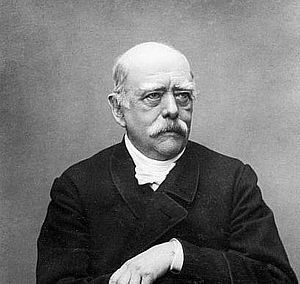In 19th century Europe, the old concert of great powers, states which had been dominant since the end of the Napoleonic Wars, was shaken by the rise of two new powers: Germany and Italy, both of which had recently been unified. As was to be expected, the rise of two new powers put pressure on old geopolitical understandings–for example, France being the dominant land power in Europe, and Austria being the most important state in both Central Europe and the Italian peninsula.
Yet, despite the increase of German and Italian strength due to the unification of those states, they had much work to do in order to catch up with other powers, which had a head start in a system that had developed long before. Other states in Europe already had a head start in industrialization, domestic coherence, and the acquisition of colonies. But, in many ways, Germany and Italy adapted differently to their circumstances, with one becoming a truly great power, and the other remaining a mid-level power.
Although it is not possible to draw exact analogies between Indian and European history, it is still instructive to note the similarities in order to understand India’s current geopolitical position. India is a great power today that has come in late to an international system that has in many ways excluded it, as is evident by its exclusion from the Nuclear Suppliers Group and the amount of effort it must put in to gain admission to such a group that it should naturally be a part of.
India: the world’s seventh largest country by area, with the second largest population in the world, nuclear weapons, and considered the fourth strongest power by military strength in the world. By most accounts, it will soon have the third largest economy in the world. Yet its nuclear weapons program is not considered fully legitimate and it lacks a permanent seat on the United Nations Security Council.
Like Germany and Italy in 19th century Europe, it is a power that has come late to the table, as it was not yet an independent country in 1945 when the table was set. India could not have hit the ground running then in any case, because it too had long been divided and under foreign domination.
Both Italy and Germany had large populations and economies, and vibrant cultures. But Germany ultimately was able to act and be accepted as a great power, equal to, or perhaps even superior to existing powers in a manner that Italy was not. Much of this had to do with the quality of its military industrial base, the experience and grand strategy of its leadership and military command, and the way it carried itself in international relations. Italy was often considered a junior partner, weak and sidelined, both by its initial allies in the Triple Alliance (Germany and Austria-Hungary), then its allies in World War I after 1915 (France, Britain, and Russia). In the meantime, Germany acted like and was treated as a major power and a broker of international disputes in the Balkans (1878) and Africa (1885). On the other hand, Italy had to make do with grabbing what it could in the disappointing aftermath of these conferences.
For good or for ill, Germany thus presented itself as an intermediary and a power worthy of reckoning, a lesson soon followed by the United States, when Theodore Roosevelt brokered a peace between Japan and Russia after the Russo-Japanese War in 1905. India should take note: it was not a major player in Iranian nuclear talks or the Syrian Civil War, nor has it been asked to play a major role as a mediator in international disputes yet. India often has to play second fiddle to China when seeking economic and infrastructure deals with other countries in Asia or Africa.
Additionally, India should understand the importance of achieving clarity with its foreign policy and choice of partners. There is much to be said about the benefits of not formally entering into alliances with any one bloc of states or maintaining friendly relations with opposing states (such as both Russia and the United States or Iran and Saudi Arabia). However, India should be wary of trying to ally with everyone and then becoming an essentially superfluous member of multiple opposing partnerships; for example, India will soon join the Shanghai Cooperation Organization (SCO), in which China plays a major role, while also recently strengthening its partnership with the United States. India can hardly be geopolitically aligned, in the long run, with what are essentially opposing blocs.
In Germany, Bismarck temporarily aligned with different powers for a concrete goal, namely the union of his country, but otherwise knew what he wanted and doubled down on a foreign policy that was in the best interests of his country–keeping France and Russia apart. Even after Bismark, Germany was still the major partner of a relatively stable alliance of central European powers and its goal remained to keep France down–this was clear. On the other hand, Italy drifted from being a junior partner in one alliance to being a junior partner in another alliance and, despite its economic potential and population, it failed to strategically convert this into military efficiency, due to its often corrupt and messy politics.
India needs to decide, then, as a rising power. Does it want to be like Germany, a respected pole which gained influence and power on the world stage soon after its rise? Or remain a secondary power whose alliances and strategy are fluid to the point of superfluity, like Italy?

































